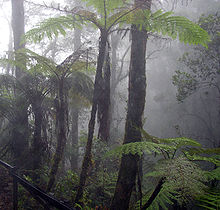 In a new study released today by Michigan State University (MSU), biofuel production in the United States through 2007, “probably has not induced any indirect land use change.” The report was conducted by Seungdo Kim and Bruce Dale, both MSU scientists, and the results will be published in the next issue of the Journal of Biomass and Bioenergy. ILUC is the theory that any acre used in the production of feedstocks for biofuels in the U.S. results in a new acre coming into food or feed production somewhere else in the world.
In a new study released today by Michigan State University (MSU), biofuel production in the United States through 2007, “probably has not induced any indirect land use change.” The report was conducted by Seungdo Kim and Bruce Dale, both MSU scientists, and the results will be published in the next issue of the Journal of Biomass and Bioenergy. ILUC is the theory that any acre used in the production of feedstocks for biofuels in the U.S. results in a new acre coming into food or feed production somewhere else in the world.
Dale and Kim empirically tested whether indirect land use change (ILUC) occurred through 2007 as a result of the expansion of the U.S. biofuels industry, spurred in part by the Renewable Fuels Standard (RFS2) that calls for 36 billion gallons of renewable fuel to be blended in fuel supplies by 2022. The researcher’s derived their conclusion after studying historical data on U.S. croplands, commodity grain exports to specific regions and land use trends in these geographical regions.
The authors write, “Biofuel production in the United States up through the end of 2007 in all probability has not induced indirect land use change. There are two feasible dependent conclusions that might be drawn from this interpretation: 1) crop intensification may have absorbed the effects of expanding US biofuel production or 2) the effects of US biofuel production expansion may be simply negligible, and not resolvable within the accuracy of the data.”
In response to the study, Renewable Fuels President and CEO Bob Dinneen stated, “Solving America’s energy crisis must rely on the best available science. Since its inception, the notion indirect land use change has been deeply flawed and repeatedly disputed. It is refreshing to see academia using real-world data and actual market behaviors to challenge the hypothetical results and ‘what if’ scenarios that have so far dominated the ILUC discussion.”
 “Biofuels like ethanol offered unparalleled environmental benefits as a renewable alternative to gasoline. Hiding behind the faux science of ILUC, some have attempted to stall and thwart the sustainable growth of biofuels across the globe and especially in the U.S. This work from MSU, coming on the heels of other recent scientific analyses, has demonstrated that ILUC as a matter of science and fact is wrong,” continued Dinneen.
“Biofuels like ethanol offered unparalleled environmental benefits as a renewable alternative to gasoline. Hiding behind the faux science of ILUC, some have attempted to stall and thwart the sustainable growth of biofuels across the globe and especially in the U.S. This work from MSU, coming on the heels of other recent scientific analyses, has demonstrated that ILUC as a matter of science and fact is wrong,” continued Dinneen.
This report comes on the heels of report from the U.S. Department of Energy’s Oak Ridge National Laboratory that concluded ILUC resulting from corn ethanol expansion over the past decade has likely been “minimal to zero.”
Kim and Dale noted in the report that “prior ILUC studies have failed to compare their predictions to past global historical data.” Both the Environmental Protection Agency and the California Air Resources Board have used highly controversial ILUC modeling tools. The report concludes, “No arable land increases from the 1990s are observed in the United States. Furthermore, no declines in natural ecosystem lands in the United States have been observed since 1998.” In addition, the analysis suggests cropland expansion in foreign countries is not well correlated to U.S. biofuels demand for certain feedstocks.

